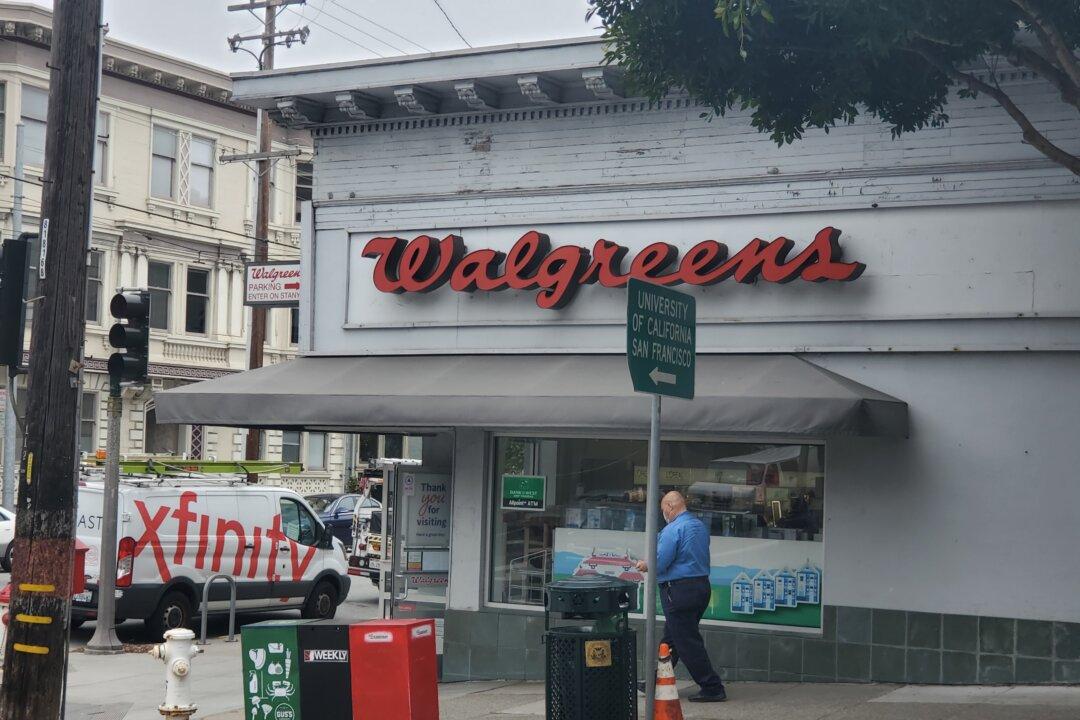Walgreens said Tuesday that it will be closing five more San Francisco locations due to the rampant, organized theft across the city.
“Due to ongoing organized retail crime, we have made the difficult decision to close five stores across San Francisco,” a Walgreens spokesperson Phil Caruso said in a statement to news outlets. “Each store will transfer prescriptions to a nearby Walgreens location within a mile radius and we expect to place the stores’ team members in other nearby locations.”





